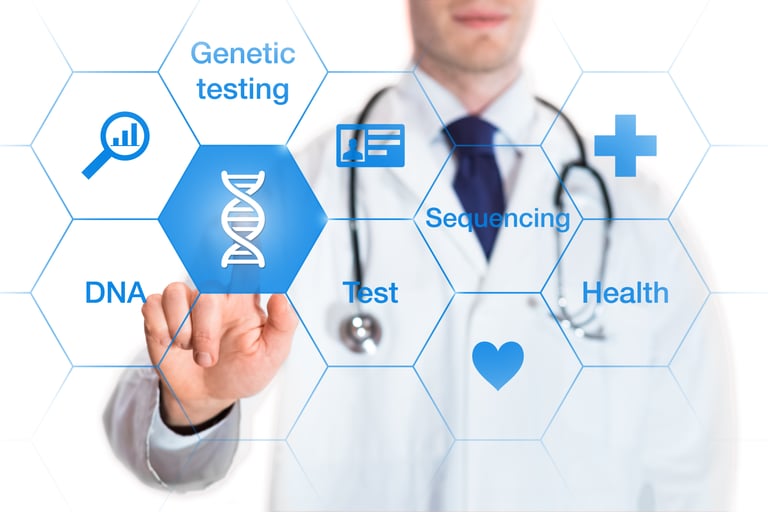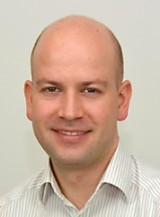By Markus Vogler
The world of diagnostics, like so many other industries, is entering what leaders in the World Economic Forum are calling the fourth industrial revolution. Digitalization, robotization and automation have given rise to highly flexible “smart factories” as well as laboratories that can handle both routine/high volume analyses and highly customized analyses at competitive prices. This is coupled with an ongoing integration of the entire value chain – from subcontractor to customer.
As this wave of integration expands to encompass different fields of science such as biotechnology, genetics and nanotechnology, it is leading to an accelerated rate of change that generates new and very disruptive technologies. To survive in this rapidly changing environment, clinical laboratories need a high level of flexibility to quickly adapt to constant shifts and unpredictable new terrains.

Disruptive advances in science like genomics and personalized medicine are shaping the future of clinical diagnostics.
Here are four major trends that are transforming clinical diagnostics:
1. Rapid advances in genomics powered by automation technologies.
The accuracy of genome sequencing has improved dramatically over the last years. Additionally, sequencing platforms have become more affordable, as have platforms for library preparation, both of which are making the technology more widely available. Furthermore, advances in data analytics have improved the understanding of genomics by revealing hidden patterns, unknown correlations and other insights, particularly when examining large-scale data sets.
At the core of this development are automation technologies that enable much higher throughputs, flexibility and low cost solutions. Furthermore, decreased costs of DNA genotyping and sequencing have made DNA testing available toconsumers, resulting in an unexpectedly strong growth rate of the number of consumers who want genetic testing. A vast majority of consumers consent to making their samples available for research; the sheer volume of biological data that is generated is growing exponentially.
2. Personalized medicines and patient-centric approaches
A major driver in society is changing consumer expectations. The ageing population worldwide, especially in the Western world, expects not only to live longer but also to enjoy healthier lives. With this expectation comes a demand for more individualized solutions. The last decades have seen a growing interest in personalized diets and training programs as well as tailor-made cosmetic procedures and products. Inevitably, the natural development is personalized medicine, which has become all the more feasible with genomics and by applying automation to healthcare.
While medicine so far has centered around standardized procedures, based on a statistically average person who does not really exist, automation and robotization of clinical diagnostics have implied that medical treatment can now be tailor-made according to a person’s own genetic makeup. These advances mean that healthcare is moving fast towards truly patient-centered approaches.
3. Groundbreaking research increases need for flexibility
New market opportunities are on the rise due to groundbreaking research in areas such as cancer immunotherapy, stem cell technology, gene editing and regenerative medicine. These paradigm-changing breakthroughs open up new markets and business opportunities for clinical laboratories, given that they can simultaneously meet the corresponding safety requirements and quality standards.
This means that IVD companies and clinical laboratories need advanced equipment, with a high degree of flexibility and automation, to be able to continuously adjust their workflow for brand new applications.
4. Greater complexity in clinical diagnostics
More samples, more data and more experimental variations – as well as the advancement of genetics and the demand for new innovative therapies – have implied an increasing complexity of clinical diagnostics. This will necessitate sophisticated systems with a high level of automation and robotics that can be adapted to different processes and workflows. Emerging technologies such as cloud computing and machine learning will be a great aid for tomorrow’s laboratories, making it easier to analyze and share data. Cloud computing enables research groups to collaborate and access huge volumes of data in real time. Machine learning uses algorithms to learn from data and to get more insights and make predictions.
Implications for IVD companies and clinical laboratories
These trends bring new exciting possibilities for clinical diagnostics, but also present new challenges – an array of heterogeneous technologies, concerns regarding safety issues and the integrity of individuals, and an ever-changing environment that needs to be dealt with. With the fourth industrial revolution, constant change is becoming the new normal. There is no gold standard technology or solution to these challenges. Instead, those who can adapt to a constantly changing environment will be the winners of the game.
To tap into new potential business opportunities, clinical laboratories will need to adjust and change their processes on a continual basis. This necessitates built-in flexibility in clinical diagnostics applications to, for example, switch between customized and generic services or to switch to new market segments – immunoassay, mass spectrometry, molecular testing and so forth. In other words, to be able to move rapidly wherever the market is going.
More on this theme in upcoming articles – subscribe to the blog to receive notification of the next article in the series.
Find out more
View some success stories of applied technologies.
About the author

Markus Vogler
Markus Vogler is a portfolio manager at Tecan, Switzerland. He manages the modular technology and product portfolio within the partnering business division. His key focus lies around agile development, lean startup of new business models and innovation. Markus hold an MSc in Business development from Berner University of Applied Sciences. Markus joined Tecan in 2016 following the acquisition of Sias AG by Tecan.











